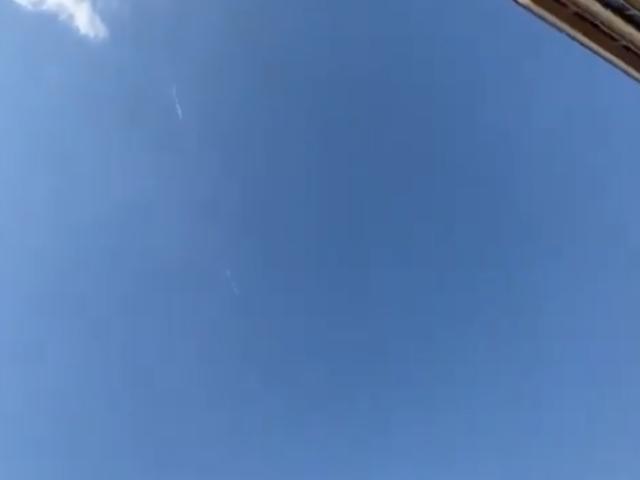In an audacious display of military domination, Israeli warplanes pierced the skies over Beirut, breaking the sound barrier three times within a mere half-hour on Tuesday. The thunderous booms, which reverberated through the Lebanese capital, sent its residents scrambling for cover. This dramatic action came just moments before a scheduled address by Sayyed Hassan Nasrallah, the formidable leader of the Iran-backed militant group, Hezbollah.
Eyewitnesses in Beirut reported seeing the low-flying Israeli jets with the naked eye, a rare and provocative sight. The explosive sounds were described as the loudest heard in the city in years, amplifying the already palpable tension in the region.
IDF sending a warning message to Beirut a few minutes ago pic.twitter.com/H1sJ2nM0Or
— Open Source Intel (@Osint613) August 6, 2024
Nasrallah's closed-circuit address was set to commemorate the one-week anniversary of the assassination of Fuad Shukr, Hezbollah’s top military commander, in a precision Israeli strike in the southern suburbs of Beirut. This high-profile killing had already sent shockwaves through the ranks of Hezbollah and its supporters. Out of fear of Israeli targeting, Nasrallah rarely appears in public but rather uses video to communicate.
Adding fuel to the fire, the assassination occurred just hours before another high-stakes elimination—the killing of Hamas leader Ismail Haniyeh in Tehran, an operation also attributed to Israel, though unconfirmed by Israeli authorities. The synchrony of these two targeted strikes has catapulted the Middle East to the brink of conflict, with Iran vowing a severe and painful response.
Our Air force above Beirut pic.twitter.com/SFpJ5unlVB
— Mossad Commentary (@MOSSADil) August 6, 2024
As Nasrallah took the stage at approximately 5 p.m. (1400 GMT), he acknowledged the airborne disturbance in his opening remarks. "The enemy might break the sound barrier during my speech in order to terrorize the attendees," he declared, accusing Israel of resorting to what he termed "childish" tactics. Nasrallah emphasized the resilience of Hezbollah, stating, "The secret behind our strength lies in continuity, because targeting our leaders will not harm our resolve and determination to continue the way."
The sight of people scattering from a café in Beirut's Badaro district, as reported by a Reuters journalist, underscored the impact of the sonic booms on daily life in the city. The psychological warfare tactics employed by Israel appeared to be aimed at both disrupting Hezbollah's significant event and demonstrating its capability to strike at will.
🇱🇧🇮🇱BREAKING: ISRAELI FORCES BREAK SOUND BARRIER OVER LEBANON
— Mario Nawfal (@MarioNawfal) August 6, 2024
In what has been called a "show of force" before Hezbollah's leader's speech any moment, Israeli warplanes violently broke the sound barrier twice over Beirut and Mount Lebanon.
Source: Sky News pic.twitter.com/YucwTpcPVR
The region now teeters on a knife-edge, with the twin assassinations of key militant leaders exacerbating an already volatile situation. Hezbollah's promise of retaliation, coupled with Iran's vow of a painful response, has set the stage for a potential escalation that could engulf the entire Middle East.
In this high-stakes game of brinkmanship, the actions of both Israel and Hezbollah are being closely watched by a world wary of the potential for widespread conflict. As the situation develops, the specter of war looms large, threatening to unravel the fragile peace that hangs by a thread over the region.


